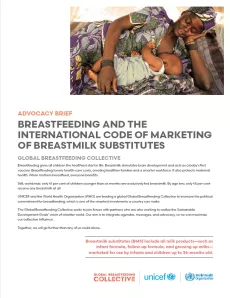Breastfeeding and the International Code of Marketing of Breastmilk Substitutes
Advocacy brief

Highlights
The aggressive marketing of breastmilk substitutes creates a major barrier to breastfeeding. Studies show that these tactics reduce breastfeeding rates, putting both children’s and mothers’ health at risk. Consequently, countering this industry’s marketing practices and promoting the benefits of breastfeeding are top advocacy priorities.
Breastmilk substitutes (BMS) include all milk products—such as infant formula, follow-up formula, and growing up milks— marketed for use by infants and children up to 36-months old. Inappropriate and unnecessary use of BMS is associated with an increase in the risk of respiratory and diarrhoeal diseases, as well as an increase in deaths in children under five.
Countries have shown that breastfeeding rates can be dramatically improved within a short time period. Actions, policies, and programmes that support mothers at health facilities, home and work have been shown to significantly increase breastfeeding. We invite partners to join us in protecting families from the commercial pressures of the BMS industry.





